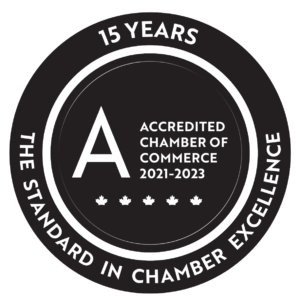FROM THE GOVERNMENT OF CANADA NEWSROOM:
News release
January 31, 2022 Gatineau, Quebec Employment and Social Development Canada
Now more than ever, as Canada recovers from the COVID-19 pandemic, skilled tradespeople are in high demand to fill well-paying jobs and build rewarding careers. The most recent projections estimate about 700,000 skilled trades workers are expected to retire between 2019 and 2028, creating an ever-growing need to recruit and train thousands more.
That is why today, the Minister of Employment, Workforce Development and Disability Inclusion, Carla Qualtrough, launched an advertising campaign to promote the skilled trades as a strong first-choice career path for youth and young adults.
Also launched as part of this campaign is Canada.ca/skilled-trades, a comprehensive website that offers a one-stop national repository for information about the skilled trades. The site will help young Canadians learn about the more than 300 skilled trades in Canada and the Red Seal trade designation. The site also highlights in-demand trades in each region and available financial support offered by the Government of Canada. The campaign will reach youth and young adults through popular social media platforms, websites, campus billboards, public transit and national broadcast media.
This campaign was developed with insights and valuable contributions from the special advisors to Minister Qualtrough, who each in their own right is a long-standing and passionate advocate for the skilled trades, encouraging apprenticeships and promoting this rewarding career path to Canadians from coast to coast. The advisory committee was composed of:
- France Daviault, Executive Director of the Canadian Apprenticeship Forum;
- Jamie McMillan, Founder of KickAss Careers and talented ironworker and boilermaker by trade;
- Mandy Rennehan, Chief Executive Officer and Founder of Freshco; and
- Matt Wayland RSE, Executive Assistant to the International Vice-President and Canadian Director of Government Relations for the International Brotherhood of Electrical Workers Canada.
To further support more Canadians to join the skilled trades, the Government of Canada is investing nearly $1 billion annually in apprenticeship supports through grants, loans, tax credits, Employment Insurance benefits during in-school training, project funding, and support for the Red Seal Program, in addition to existing funding programs. Announced in Budget 2019, the Canadian Apprenticeship Strategy will strengthen existing apprenticeship supports and programs by helping apprentices and key apprenticeship stakeholders, including employers, to participate and succeed in the skilled trades.
Quotes
“Canada’s workforce needs more skilled trade workers. They have expertise and skills that are essential to our economy and our way of life. When Canadians are contemplating a new career, we want them to consider entering the skilled trades and to understand the exciting, well-paying opportunities that they present.”
– Minister of Employment, Workforce Development and Disability Inclusion, Carla Qualtrough
“Promoting the skilled trades to young people is essential to reducing the stigma that still surrounds careers in the trades. These careers offer good quality, well-paying jobs, yet there is a gap in knowledge for many Canadians. With this campaign, I hope to see more young Canadians from all types of backgrounds find a career in the trades and explore the apprenticeship learning pathway.”
– France Daviault, Executive Director of the Canadian Apprenticeship Forum
“Skilled trades are everywhere impacting most aspects of our lives. It’s exciting to be part of a campaign that highlights the endless benefits skilled trades careers offer including excellent programs, hands-on learning, paid training, diverse choices and lifelong financial sustainability. There is a wonderful sense of pride and accomplishment that is unbeatable making skilled trades an exceptional choice for anyone looking for a rewarding, lucrative career.”
– Jamie McMillan, Founder of KickAss Careers
“The skilled trades offer diverse and rewarding careers, but unfortunately these jobs are sometimes seen as less valuable by Canadians. That could not be further from the truth. I am happy to have participated in the development of this campaign that is making trades more relatable and reminding Canadians of all ages that working in the trades can lead to in-demand and well-paying jobs.”
– Mandy Rennehan, Chief Executive Officer and Founder of Freshco
“As Canada experiences more shortages in the skilled trades, it is more important than ever to reach young Canadians from all backgrounds and show them how the trades offer rewarding and high-paying careers. Careers that allow you to earn while you learn on the job. Whether it is building a new hospital or school in your community, to the greenest skyscrapers or clean renewable power plants that will help Canada meet our climate change goals, The skilled trades will be front and centre in tackling the country’s greatest challenges and building a greener, more resilient future. There has never been a more exciting time to explore a career in the skilled trades.”
– Matt Wayland, Executive Assistant to the International Vice-President and Canadian Director of Government Relations for the International Brotherhood of Electrical Workers
Contacts
For media enquiries, please contact:
Jane Deeks
Director of Communications
Office of the Minister of Employment, Workforce Development and Disability Inclusion, Carla Qualtrough
[email protected]
Media Relations Office
Employment and Social Development Canada
819-994-5559
[email protected]
Backgrounder
Skilled trades are a key component of Canada’s workforce and are vital to the strength and diversity of Canada’s economy. Throughout the COVID-19 pandemic, skilled tradespeople have been critical to essential sectors, and the demand for skilled tradespeople is expected to remain high over the next 10 years as Canada’s economy recovers.
About one in six Canadians work in the skilled trades. In 2018, half of all journeypersons who had completed a Red Seal apprenticeship program in the top 14 Red Seal trades five years earlier were earning an annual income greater than $68,750. Some journeypersons earn more than similarly situated graduates of university master’s programs. Despite these facts, just one in ten 15-year-old students definitely plan to pursue a trades career, and individuals from equity-deserving groups continue to be under-represented in the trades.
That is why the Government of Canada is making significant investments to break down barriers and help apprentices and tradespeople get the skills they need to succeed, and pursue a good career in a skilled trade. In fact, the proportion of women among new registrations in male-dominated Red Seal trades has more than doubled between 2004 and 2020.
Current federal apprenticeship supports target the needs of individual apprentices, employers and unions, and promote access to skilled trades careers and opportunities for all interested individuals, including those from equity-deserving groups.
Canadian Apprenticeship Strategy
The Canadian Apprenticeship Strategy, announced in Budget 2019, aims to increase the impact of the Government’s current suite of apprenticeship supports and help address ongoing challenges (such as increasing diversity in the trades). The key objectives of the strategy are to:
- promote the skilled trades as a good career option;
- ·support the development of apprenticeship initiatives that help Canadians to explore, prepare for, participate in and succeed in apprenticeships;
- facilitate the participation of employers and unions in apprenticeships; and
- encourage the development of innovative tools and approaches to better prepare pre-apprentices, apprentices and journeypersons for the jobs of tomorrow.
Apprenticeship Service
Announced in Budget 2021, the Apprenticeship Service will provide $470 million over three years, beginning in the 2021 to 2022 fiscal year, to help first-year apprentices in eligible Red Seal trades connect with employment opportunities at small and medium-sized enterprises, giving them the hands-on experience that is required to succeed in the skilled trades
Through the Apprenticeship Service, Employment and Social Development Canada funds intermediary organizations that will provide small and medium-sized enterprises with up to $5,000 for every new, eligible first-year apprentice hired, to assist with upfront costs such as salaries and training. To boost diversity in the Red Seal trades, an additional $5,000 will be provided to employers for hiring from equity-deserving groups, including women, visible minorities and persons with disabilities.
The intermediaries will also provide additional supports to employers to help them participate in the apprenticeship system. Supports could include help to navigate the apprenticeship system, to onboard apprentices and to create inclusive workplaces.
Apprenticeship grants
The Government of Canada provides three kinds of apprenticeship grants: the Apprenticeship Incentive Grant, the Apprenticeship Incentive Grant for Women and the Apprenticeship Completion Grant.
Since the introduction of the apprenticeship grants, the Government of Canada has provided more than 978,200 grants to Canadians. This represents $1.28 billion in funding, including:
- more than 678,900 Apprenticeship Incentive Grants;
- more than 8,600 Apprenticeship Incentive Grants for Women; and
- almost 290,700 Apprenticeship Completion Grants.
Other investments in skilled trades
To support apprentices, the Government also invests in loans, tax credits, Employment Insurance benefits during in-school training, project funding and the Red Seal Program. The Red Seal Program promotes an efficient and integrated national skilled trades labour market by providing a common foundation for trade certification and apprenticeship training in Canada. Through federal support of the Red Seal Program, provinces, territories and industry have access to high-quality Red Seal products (e.g. Red Seal Occupational Standards and Red Seal examinations) for each of the 55 Red Seal trades.
Programs such as the Union Training and Innovation Program and the Skilled Trades Awareness and Readiness program support unions and other organizations so they can help key groups facing barriers to succeed in the trades.
Union Training and Innovation Program
The Union Training and Innovation Program supports union-based apprenticeship training, innovation and enhanced partnerships in the Red Seal trades. It has two streams of funding. Stream 1, Investments in Training Equipment, provides unions with up to 50% of the cost of new, up-to-date equipment and materials that meet industry standards or investments in new technology in the Red Seal trades, leading to a more skilled, inclusive, certified and productive trades workforce. Stream 2, Innovation in Apprenticeship, supports innovative approaches to address long-standing challenges limiting apprenticeship outcomes in Canada.
Since 2017, the Government of Canada has funded 217 projects for a total investment of approximately $127.4 million.
Skilled Trades Awareness and Readiness program
In Budget 2018, the Government announced $46 million over five years, with $10 million per year ongoing thereafter, to encourage all Canadians—including those who face barriers, such as women, Indigenous people, visible minorities, newcomers, persons with disabilities and youth—to explore and prepare for careers in the skilled trades.
The Skilled Trades Awareness and Readiness program supports pre-apprenticeship training, including:
- career exploration opportunities to support well-informed career decisions (e.g. career fairs, mentorship, in-school introduction, job shadowing, simulators and mobile training);
- skills training to better prepare individuals for success (e.g. Skills for Success, formerly known as essential skills training and safety certification); and
- work experience to offer hands-on job experience and connections with employers (e.g. work placements to increase awareness of the trades and get practical experience).
Since 2018, the Government of Canada has solicited projects with a wide range of organizations eligible for this program.




